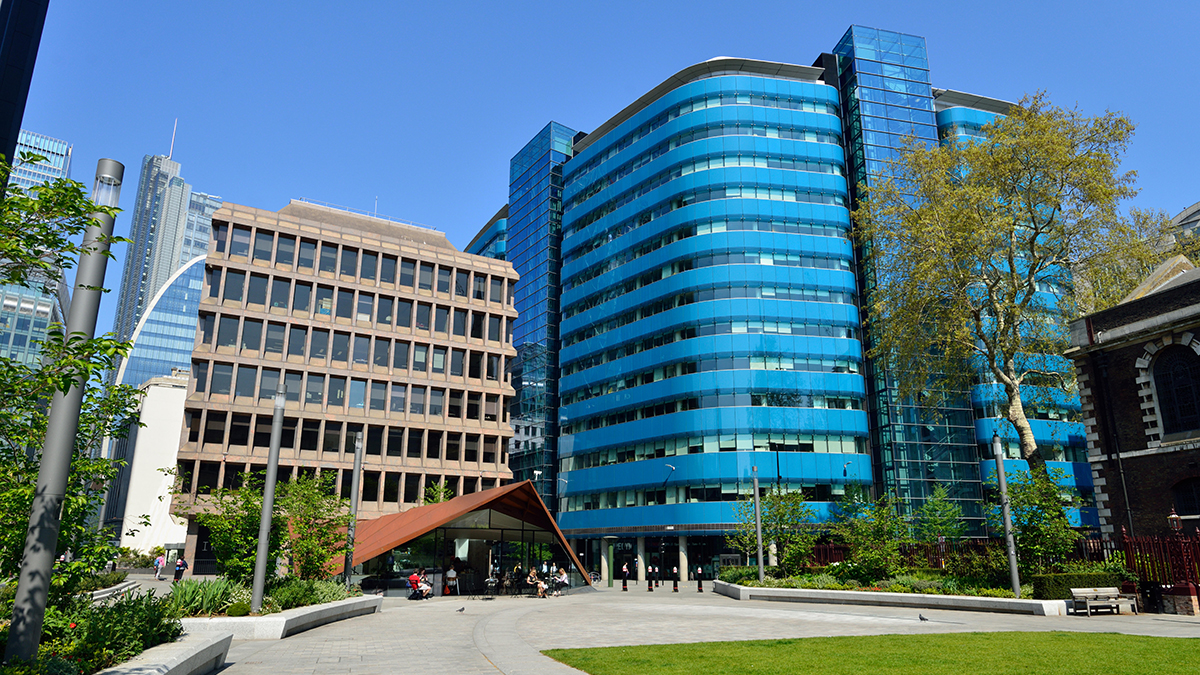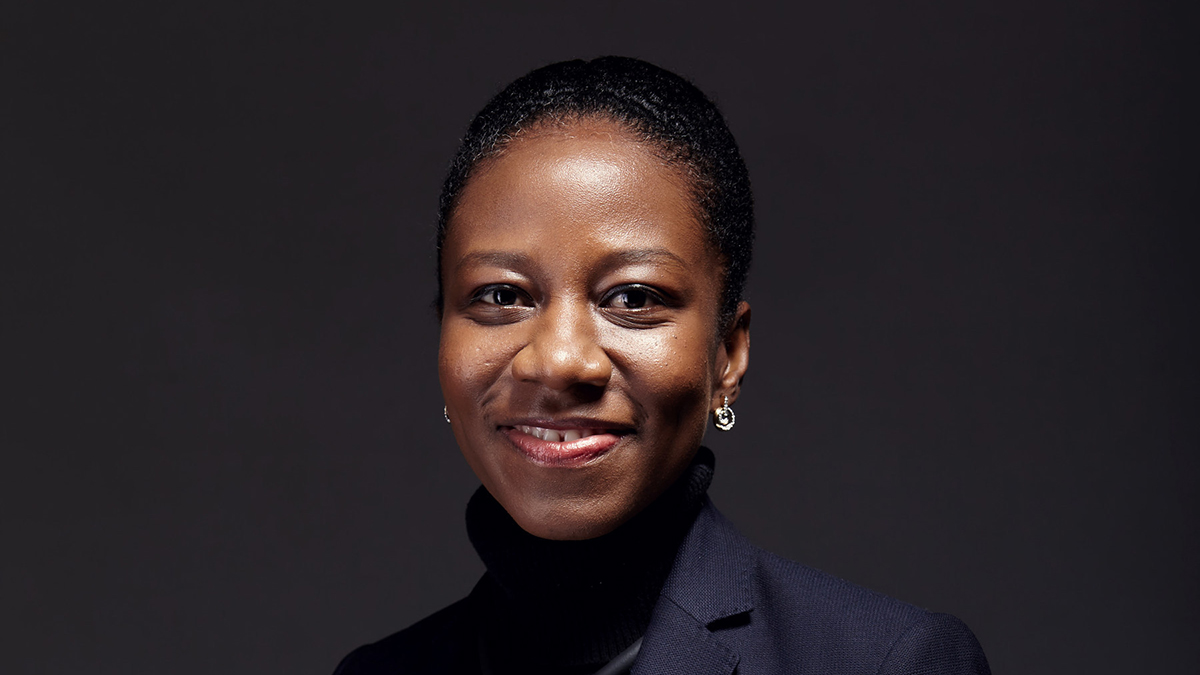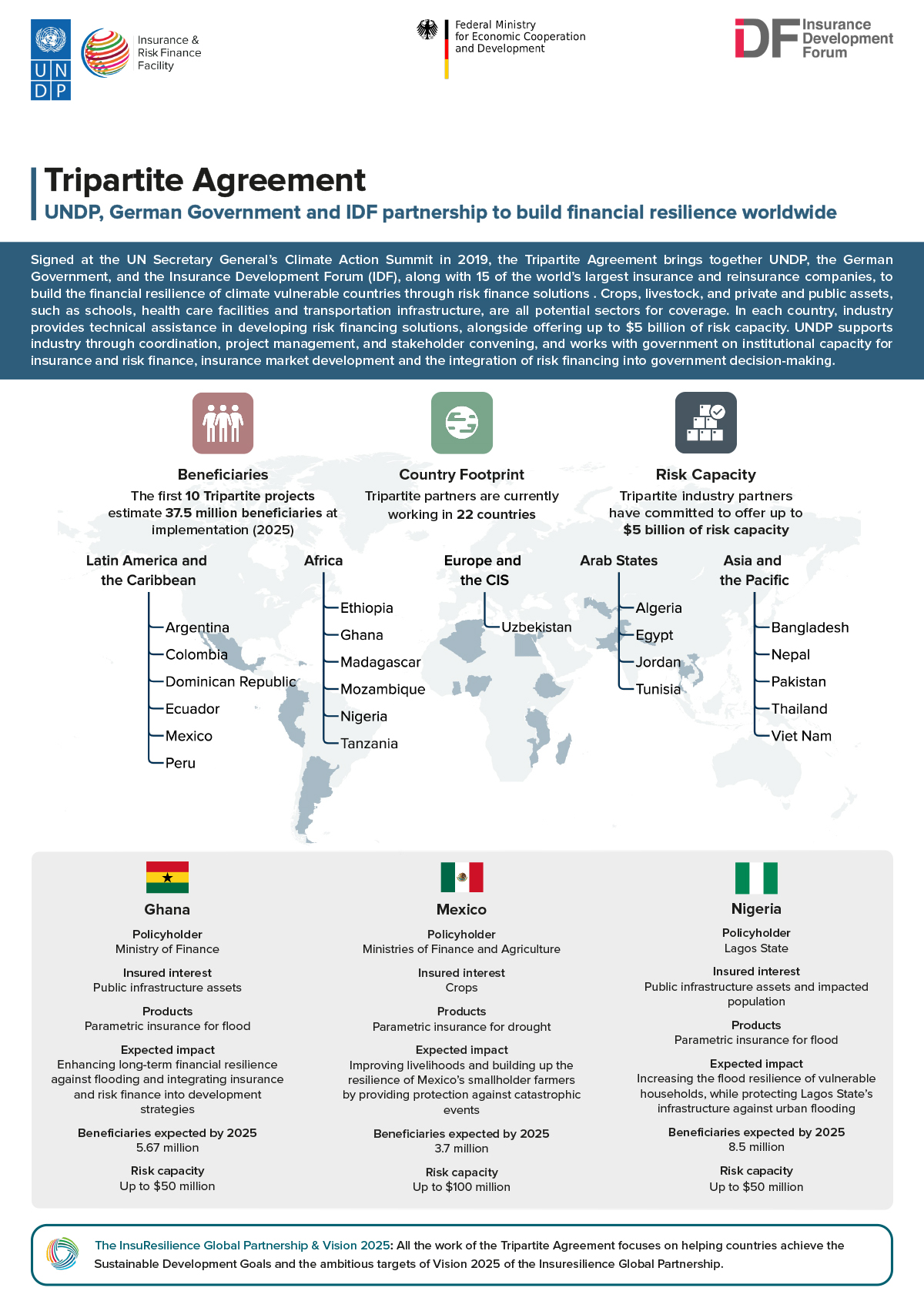Ensuring resilience for the uninsured
A special Insurance Day podcast examines how re/insurers can help those who are the most vulnerable to climate change
‘Inclusive insurance’ is the term used to describe the industry’s efforts to reach unserved, underserved, vulnerable or low-income populations in emerging markets with appropriate products. Many of these populations are located in areas suffering the worst impacts of climate change
We often hear about insured losses but much less often about uninsured losses. This is what is known as the “protection gap”. To put this into context, the world’s low-income countries lose $29bn every year from natural disasters, yet only 3% of these losses are covered by insurance.
An organisation at the forefront of addressing the protection gap is the Insurance Development Forum (IDF). For Insurance Day’s special report on climate risk, its online editor, Louise Isted, spoke to the IDF’s secretary-general, Ekhosuehi Iyahen.
Below is a transcript of the opening minutes of the conversation.
Louise began by asking about the role insurers and reinsurers can play in building greater resilience and protection for those communities and countries who are the most vulnerable to natural disasters and the associated economic shocks.
Ekhosuehi Iyahen: $29bn in losses every year, only 3% of those losses covered by insurance. What that means is that most people in the world do not actually have access to insurance. What that translates to, when they do have these events occurring, is a profound loss, not only in terms of loss of lives, but also livelihoods. And their ability to bounce back from that shock is severely curtailed.
That happens at an individual level – families, with implications when you lose your business in terms of financing education, etc that can be for generations. But these concerns also persist at the sovereign level, with governments who have to divert critical resources from development into responding to disasters. And so the protection gap is really a global problem. It straddles both developed and developing markets. And as a global community, we should be concerned. And specifically, as an insurance industry, how do we do more, beyond talking about the protection gap, to actually close it?
Louise Isted: In its report on progress in 2022, the IDF describes “inclusive insurance” as being critical to sustainable development. I asked Ekhosuehi what this means in practice.
EI: Inclusive insurance encompasses many different approaches to reaching the uninsured, which I referenced earlier, and the underserved, vulnerable or low-income populations in emerging markets, with affordable insurance. It is one thing to say “OK, yes, there is insurance”, but can people actually afford it? The inclusive insurance agenda is really about innovating and trying to develop products that match the needs, the affordability and the expectations of those communities that are underserved.
LI: Inclusive insurance is the name of one of the IDF’s five working groups. There are also Law, Risk modelling, Infrastructure and Sovereign working groups.
EI: If we think about the role of industry in supporting development, there are various fronts that we can contribute in terms of the industry bringing its capabilities to bear. And so, within the IDF, we have a number of other working groups beyond inclusive insurance that try to tackle this issue from a variety of angles.
The first is our risk modelling working group. And I think that this is especially critical because, again, it is a channel through which, I believe, industry can help to support the availability of better risk information. Right now, when we look at the world around us, when we think about climate change, even Covid-19 and the experiences and how people understood those risks, much less responded to those risks, I think it reveals there is a lot more that we can do as a community. So that is certainly one area of work for us that we believe in and we see as very important in terms of helping to address the protection gap.
A second element of our work is focused on law, regulation and resilience policies. And, again, thinking about the industry as a regulated industry sector and in contexts where you might not have well-developed insurance markets, there is scope for engaging with regulators and also government officials; if it is the ministries of finance, etc, of trying to understand the role that the industry can play in terms of supporting resilience as a shock absorber. But beyond that, also an engine that can allow for people to take risks and drive growth and pursue whatever ambitions that they might have.
If we talk about innovation, developing solutions for new markets for the uninsured, the underinsured, there is a need to also invest in what these new solutions can look like. And so, there are two working groups within the IDF that focus specifically on this, and we touched on the inclusive insurance working group, but we also have one that is focused on sovereign and humanitarian solutions. And, again, this is about working with governments directly in the development of solutions; if it is insuring public schools, as an example, or building a programme for a federal government to insure smallholder farmers.
But the reality also is that in many of the countries that we work in as the IDF – developing countries, emerging markets – we also have a situation where humanitarian actors play a significant role. And the reality is that, within that community, only 2% of financing is pre-arranged before disasters. So, for the IDF, there is a tremendous amount of work that we believe we can do in terms of working with that community to think about pre-arranged financing and how to structure that so that we avoid seeing the kinds of pictures that we often see when disasters occur.
And then our final working group or taskforce is our infrastructure taskforce. And, again, looking at insurers on both sides of the balance sheet, as institutional investors, what are the opportunities when we think about the climate crisis and the need to mobilise financing for mitigation or resilience building? So, a critical part of our work is really trying to explore how insurers can invest more in emerging markets, again towards helping to drive the needs that are required in those contexts, but also very much aligned with how do we spur and support resilience.
The IDF's St Botolph Building headquarters in London
 Tim Ayers/Alamy Stock Photo
Tim Ayers/Alamy Stock Photo
LI: Michel Liès, the chair of the IDF who is also chair of Zurich Insurance, has joined the Early Warnings for All Initiative, which was launched by the UN secretary-general at Cop27 last November. I asked Ekhosuehi about the ways the IDF will support this initiative.
EI: If we reflect on the climate crisis – and you would have seen the recent IPCC report – the reality is that there is a certain level of impact that is already baked into the system in terms of the shocks that we will be seeing. And so, part of the challenge that came from the secretary-general was how can we create a system that could provide early warning for people all around the globe as just a base contribution to help him to address this crisis.
The IDF’s interest in that is that we see this as a fundamental and important contribution. And the industry has the analytical capabilities to support that. But beyond that, it is not just about early warning, it is also about early action. And again, this ties in with the principles, we believe, in terms of ex-ante financing and the role that insurance can play in terms of triggering people’s ability to actually respond when these shocks occur. So, for us, we are supportive of the UN secretary-general’s Early Warning for All Initiative and certainly see a number of avenues from the risk analytics early warning information provision communication element, to actually the deployment of solutions to effect early response.
About a year-and-a-half ago, we actually triggered a partnership with a number of civil society actors, Start Network as well as MapAction, where the IDF and its membership provide these institutions with early warning information in terms of hazards in a number of specific countries to support actual early intervention. So that is one programme that we have going, which I think is quite an important one, and we launched it in Glasgow at the Cop event.
But beyond that, we also started to work with these humanitarian actors to really help them think through how they finance that response. So, beyond the use of this information, how can the actors on the ground be linked to financing so that they can actually be more efficient and earlier in their interventions with countries. For us, there are a variety of ways in which we are contributing to that agenda, but the objective is how do we scale that in line with the ambition and the expectations and the challenge that the UN secretary-general has posed.
LI: A key focus for the IDF is building public-private partnerships and I asked Ekhosuehi to explain why they are needed in the context of climate risk, and also to give examples of those which the IDF has been working to build.
EI: Public-private partnerships I think are critical when we think about the risks that we are facing. Again, reflecting on your earlier phrase around the protection gap, if it was something the industry alone could solve, it would have been solved similarly for the public sector. So, for us, it is the reality of how do we construct or create an ecosystem that can allow for the trust to be built between the public and the private sector in order to design the kinds of solutions that are needed.
And it is easy to talk about public-private partnerships; it is much more difficult to get into the details of aligning incentives, timeline and delivering results. And so, for us, in the context that we are concerned with – where there is a lack of insurance – there is a need for basic financing for investment. There is the need, it is essential that, as an industry, we are proactive about engaging with industry to build that trust and help to define solutions.
And perhaps I can give an example of a programme that we currently have in Mexico, where we are working with the federal government on the design of an insurance solution to cover smallholder farmers in Mexico. And the request from the Ministry of Finance was they were very familiar with insurance, etc, but there was a distribution challenge: you know, an interest in making sure that the smallholder farmer at the end of the line was aware of the insurance; an opportunity to deepen understanding of the product; and ambition by the government in terms of deepening its financial inclusion strategy.
So, its request to the IDF was to really work with them to build a greater understanding of the needs of those farmers but think through possible distribution channels. And again, leveraging technology to help them to be able to get funds to these affected farmers when events occur.
So, our problems tend to be a bit complex, involving quite a number of stakeholders, because central to it is understanding risk, there is an education element, but there is also, I think, the obligation of making sure that what we are designing actually matches the need and is targeted at people who we need it to reach, which are the communities that are most at risk.



